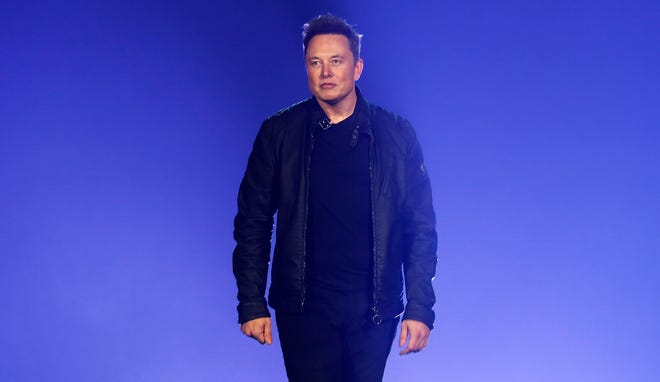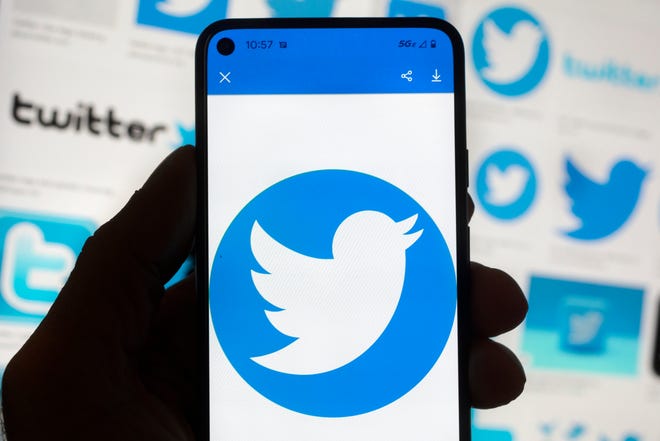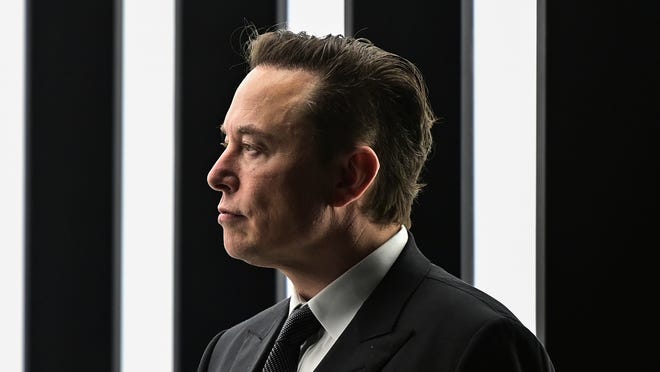Elon Musk is the new owner of Twitter, giving the Tesla billionaire control of one of the world’s most powerful megaphones.
Late Thursday evening, Musk tweeted: “The bird is freed.”
Multiple news outlets reported late Thursday that, after months of legal wrangling and public acrimony, Musk had closed the $44 billion deal and fired top executives including the company’s CEO Parag Agrawal.
Twitter chairman Bret Taylor removed that title from his Twitter bio.
.
On Wednesday, Musk changed his Twitter bio to “Chief Twit” shortly before walking into Twitter’s San Francisco headquarters carrying a porcelain sink. “Let that sink in,” he tweeted.
With the deal completed, Twitter is once again a private company. Its shares stopped trading nearly nine years after it went public under the symbol TWTR on the New York Stock Exchange.
Twitter purge? Top Republican lawmakers lost followers after Elon Musk revived Twitter bid
Twitter shake-up:The night after Musk takeover, a congressional Twitter shake-up: Republicans gain followers, Democrats lose them
How much did Musk buy Twitter for?
Musk agreed to buy Twitter in April and take it private before trying to get out of the deal, claiming Twitter misrepresented the number of spam and fake accounts on its platform, which Twitter denied.
Twitter sued Musk to complete the purchase. Earlier this month, Musk offered to buy Twitter at the original price of $54.20 a share. A Delaware Court of Chancery judge delayed the trial that had been set for Oct. 17 to give the two sides more time to reach a deal.
Did Elon Musk overpay for Twitter?
Musk has acknowledged he overpaid for Twitter.
“The $44 billion price tag for Twitter will go down as one of the most overpaid tech acquisitions in the history of M&A deals on the Street in our opinion,” Wedbush Securities analyst Daniel Ives wrote in a research note Thursday. He put the value of Twitter at closer to $25 billion.
“Although obviously myself and other investors are overpaying for Twitter right now,” Musk recently said, “the long-term potential for Twitter is an order of magnitude higher than its current value.”
Why did Musk buy Twitter?
On a Tesla earnings call earlier this month, Musk said he was “excited about the Twitter situation.” He described Twitter as a platform with “incredible potential” that had “languished for a long time.”
Musk has predicted he will double revenue in three years, though he has offered few specifics on how he would do that. He has said he would like to get away from Twitter’s heavy reliance on advertising.
According to Musk, Twitter could help accelerate his plans for X, “the everything app” that, like China’s WeChat, he envisions will combine messaging, video, payments and commerce.
For now, Twitter faces a shaky future.
The Musk deal will saddle Twitter with an estimated $13 billion of debt. Analysts say Twitter may have to make annual interest payments of more than $1 billion.

Morgan Stanley and Bank of America were among the banks that provided debt financing for the Musk takeover. Equity investors included Saudi Prince Alwaleed bin Talal, Paul Andreessen and Oracle founder Larry Ellison.
Twitter faces slowing economy, ad sales
Musk clinched the Twitter deal as the long struggling company ran headlong into a business whipsaw: a struggling economy slowing demand for digital advertising.
Alphabet said Tuesday that quarterly Google ad sales decelerated dramatically, creating a drag on profits. Facebook parent company Meta reported a similar drop in ad sales on Wednesday.

Twitter, which relies on advertising for 90% of its revenue, has pushed to find other sources of revenue such as subscriptions. But those products like Twitter Blue have not gained much traction.
The deal comes at a time when Twitter is struggling to keep its most active users engaged, according to internal Twitter research viewed by Reuters. Heavy tweeters have been in decline since the start of the pandemic, a Twitter researcher wrote in a paper: “Where did the Tweeters Go?”
Twitter braces for deep cuts under Musk
Twitter’s previous management already planned to slash payroll by about $800 million and make deep cuts to infrastructure including data centers by the end of 2023.
Reports of more austere measures under Musk – including laying off 75% of the company’s 7,500 workers – circulated before the deal closed.
Fellow entrepreneur Jason Calacanis suggested cutting the number of Twitter employees to some 3,000, according to messages he and Musk exchanged.
A dramatic workforce reduction could undercut Twitter’s ability to curb harmful content and safeguard users’ data.
“The easy part for Musk was buying Twitter,” Ives said. “The Herculean task will be fixing it in the years to come.”
Will Twitter bring back Trump, banned accounts?
Critics of the deal say they fear Musk’s relaxed approach to content moderation will bring back extremist content and controversial figures banned for spreading conspiracy theories and hateful views including former president Donald Trump.
Madison Avenue is worried. Kieley Taylor, global head of partnerships at GroupM, a leading ad-buying agency that represents blue-chip brands, told the Wall Street Journal that Trump’s return would be a red line for some brands.
In a tweet addressed to Twitter advertisers Thursday, Musk said it’s “important to the future of civilization to have a common digital town square,” but it “obviously cannot become a free-for-all hellscape, where anything can be said with no consequences!”
Conservatives, who accuse Twitter and other mainstream social media platforms of selectively targeting conservatives and silencing their voices, celebrated the Musk deal, anticipating a swift return to the freer-flowing expression of Twitter’s early days.
How Musk’s Twitter could affect politics, midterms
In recent years, Twitter and other social media platforms have become more consequential, as have the people who run them, according to Joan Donovan, co-author of “Meme Wars: The Untold Story of the Online Battles Upending Democracy in America.”
Tech leaders are political gatekeepers who use social media ownership “as a proxy for political influence,” says Donovan, research director of Harvard Kennedy School’s Shorenstein Center on Media, Politics and Public Policy.
With no regulations governing the integrity of civic information, Musk’s ownership of Twitter could shift the political landscape.
“Twitter is not a public space. It is run by a small group of people and, in this case, with Musk taking over, he’s turning content into culture wars. We are going to see battles over who gets to stay, who has to go and whose information is prioritized,” Donovan told USA TODAY.
“Ultimately when we think about Twitter as a place for geopolitics, we are at the mercy of Musk deciding what kind of propaganda is going to flow through that platform and how it is going to be moderated.”
